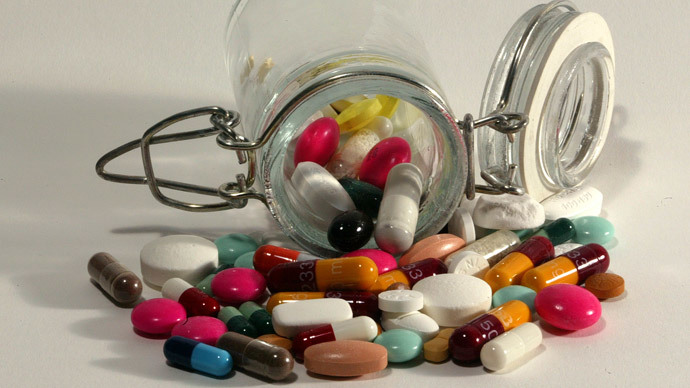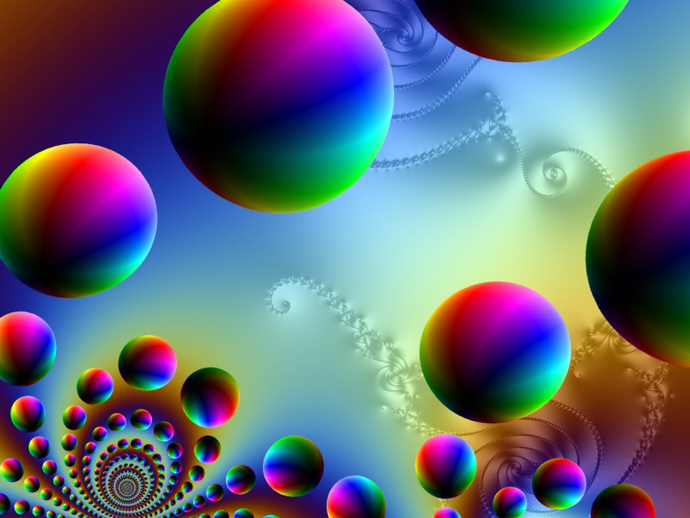LSD cures depression? Scientists plead for cash to fund ‘exciting’ drug study

British scientists are asking the public for financial backing to push forward an “exciting” study exploring the positive impacts of psychedelic drugs like LSD on the brain.
The study, carried out as part of a psychedelic research project by neuroscientists at Imperial College London, is expected to “revolutionize” scientists understanding of the brain.
To date, the project has been partially funded by Imperial College London and the Beckley Foundation. However, researchers are now in need of £25,000 to analyze scans.
Scientists belief LSD (lysergic acid diethylamide) can be used to treat addictions, depression and chronic pain.
So far, 20 healthy volunteers, including 15 men and 5 women, were injected with 75 microgram of LSD. Their brain activity was then scanned to review the effects.
The drug is produced in crystalline form and then mixed with excipients (natural or synthetic substance), or diluted to make it ingestible. It’s described as having a “bitter” taste.
Physical effects include dilated pupils, higher body temperature, sweating, increased heart rate and blood sugar, and sleeplessness.
On Drugs Forum, an LSD user says the drug “opened up the third eye” and enabled their mind to drift off to a “peaceful place.”
LSD is a gateway drug to Narnia
— YUNG KIMBO (@someasianchick) March 3, 2015
LSD is an unpredictabile drug.
— sharen love (@sharenlove) March 5, 2015
LSD is not considered an addictive drug since it does not produce compulsive drug-seeking behavior.
— sharen love (@sharenlove) March 5, 2015
The research is led by David Nutt, a former government drugs adviser. He was denied funding by “traditional” sources such as the Medical Research Council (MRC) and the Wellcome Trust.
Alternatively, Nutt and his team are attempting to raise £25,000 on the Walacea crowdfunding site.
drug laws = worse science censorship http://t.co/MCNq8RplAo sympathetic account of our ambitions - pl support us http://t.co/4XISBC2v5I
— David Nutt (@ProfDavidNutt) March 5, 2015
An MRC spokesman said: “We have to ensure we use taxpayers’ money for the highest quality research that will prove real benefit.”
They claimed they are “not cautious about funding studies just because they relate to an illegal drug.”
Pretty much LSD is safer than any drug you can take #ThingsDAREDidntTeachYou.
— Kenie (@kenie_cat) March 5, 2015
Speaking to RT, Cathy Simmons, a drug addiction expert who runs the Simmons Clinic in London, says she has “huge respect” for Nutt and his work.
“This research could bring enormous leaps in the understanding of psychedelic drugs and their impact on people,” she said.
Simmons, however, fears for the safety of volunteers. She said reactions to the drug can be “unpredictable,” with occasionally negative or even permanent effects.
LSD users can experience flashbacks, or recurrences of certain aspects of the drug experience.
— sharen love (@sharenlove) March 4, 2015

“One of the great benefits of understanding how a drug works in the brain is that we have far better information with which to treat people,” she added.
“This understanding leads to the ability to much more accurately and rapidly target our non-drug treatments for permanent change.
“I would very strongly welcome more research and studies into the efficacy of these alternatives to drug therapy, so practitioners have more effective approaches to offer.”
READ MORE: War on drugs 'abject failure,' say
Richard Branson & Nick Clegg
After weighing up the pros and cons of this research project, Simmons says she is “very excited by the possibility of the new understandings” to be gained from this study.
Robin Carhart-Harris, neuroscientist from the Imperial College team told the BBC he thinks the study is “essentially important.”
Harris said once the project is completed researchers want to “look at how these drugs can be put to good use.”
None of the volunteers reported negative effects, although three experienced minor paranoia and anxiety.
Harris said: “Those who had a challenging experience were somehow psychologically refreshed” afterwards.
“I wouldn’t say it’s a dangerous experiment, but I would say that LSD has potential negative effects,” he added.












